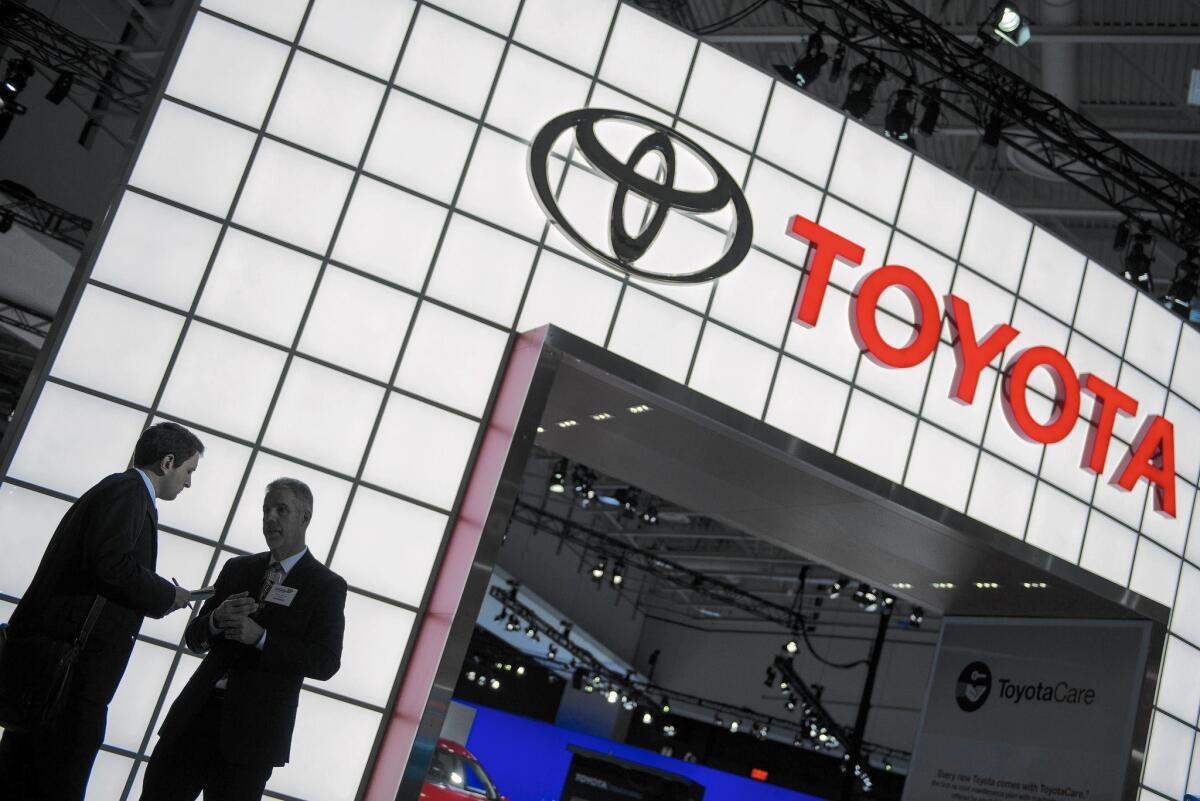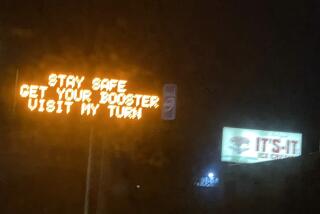Faulty air bags prompt massive alert

The National Highway Traffic Safety Administration has issued a rare alert to the drivers of more than 4.7 million vehicles with faulty air bags, which may fail to deploy in a crash or explode before any collision.
The federal agency asked owners of the vehicles to have them inspected as soon as possible, particularly if they live in areas that experience consistent high humidity — specifically Florida, Hawaii, Puerto Rico, the Virgin Islands and certain regions of the South Pacific.
The warning affects vehicles made by Toyota, Honda, Nissan, Mazda, BMW and General Motors, most of them from the years 2001 to 2004. Most of the air bags, made by Japanese supplier Takata, have already been recalled by automakers.
Toyota Motor Corp. issued a new, Takata-related warning Monday, saying it would conduct a “supplemental safety recall” of 247,000 previously recalled models, including Corolla, Matrix, Sequoia, Tundra and Lexus SC vehicles manufactured from 2001 to 2004. Those vehicles may have faults in their passenger-side air bags.
Most of the vehicles mentioned in the NHTSA safety alert have been the subject of earlier manufacturer recalls, but many owners have not brought them in for service — an ongoing problem in a year that has seen more than 50 million vehicle recalls, shattering the previous record of about 30 million in 2004.
Because many of the vehicles are 10 to 14 years old and are not under warranty, they are not being seen regularly by dealers who can alert the current owners to manufacturer safety recalls. That’s especially true if the cars are no longer owned by their original buyers.
“Often a recall gets significant publicity on the day it is announced, but at that point dealers are often not equipped to make the fix,” said Jack Nerad, executive editor and analyst at the industry research organization Kelley Blue Book. “By the time they are, many consumers simply forget about it.”
The air bags in question, manufactured by Takata Corp., have been a continuing safety issue. The Japanese corporation builds air bag components and assembles air bags in locations all over the world.
The company declined to comment beyond a written statement: “As supplier of the air bag inflators being recalled, we support Toyota’s decision to assure the safety of their customers. We will continue to fully support the NHTSA investigation and our customers’ recalls in every way possible.”
NHTSA has reported no deaths or injuries related to the faulty air bags. But they have been implicated in at least one death in Florida, where a state police agency is investigating a traffic fatality involving a Honda that was equipped with a Takata air bag — which is suspected to have exploded before the crash.
Clarence Ditlow, of the industry consumer watchdog group Center for Auto Safety, said Takata air bags are linked to three other deaths. In each instance, Ditlow said, the air bags exploded and debris from the explosion killed the driver.
“What’s unique here is the lethality of the defect,” Ditlow said. “If you are behind the wheel when that air bag explodes, you are likely to be killed.”
The fault appears to be caused by defective parts in Takata air bags fabricated at their factories in Moses Lake, Wash., and Monclova, Mexico. The problem can cause a metal canister in the air bag system to explode, splattering metal shards into the passenger cabin.
It isn’t only drivers who have been injured by the faulty air bags. Workers in Japanese salvage yards have reportedly also been injured when the restraint systems exploded.
The problem is more acute in humid areas, Toyota warns. Owners of the affected vehicles in “consistently high absolute humidity areas” should contact dealers immediately, the company said Monday.
But the problem may not be limited to the regions identified, NHTSA said.
“At this point, the issue appears to be a problem related to extended exposure to consistently high humidity and temperatures,” said the agency’s deputy administrator, David Friedman. “However, we’re leaving no stone unturned in our aggressive pursuit to track down the full geographic scope of this issue.”
Toyota said it would be contacting owners of the affected vehicles by mail. Faulty passenger-side air bags will be replaced at once. If replacement parts are not available, the company said, dealers would temporarily disable the passenger side air bags “and install a glove box tag informing occupants that the front passenger seat should not be occupied” until the fix is made.
NHTSA’s Friedman encouraged owners of potentially affected vehicles to visit the agency’s website and check their vehicle identification numbers to learn whether their specific car or truck has a faulty air bag.







